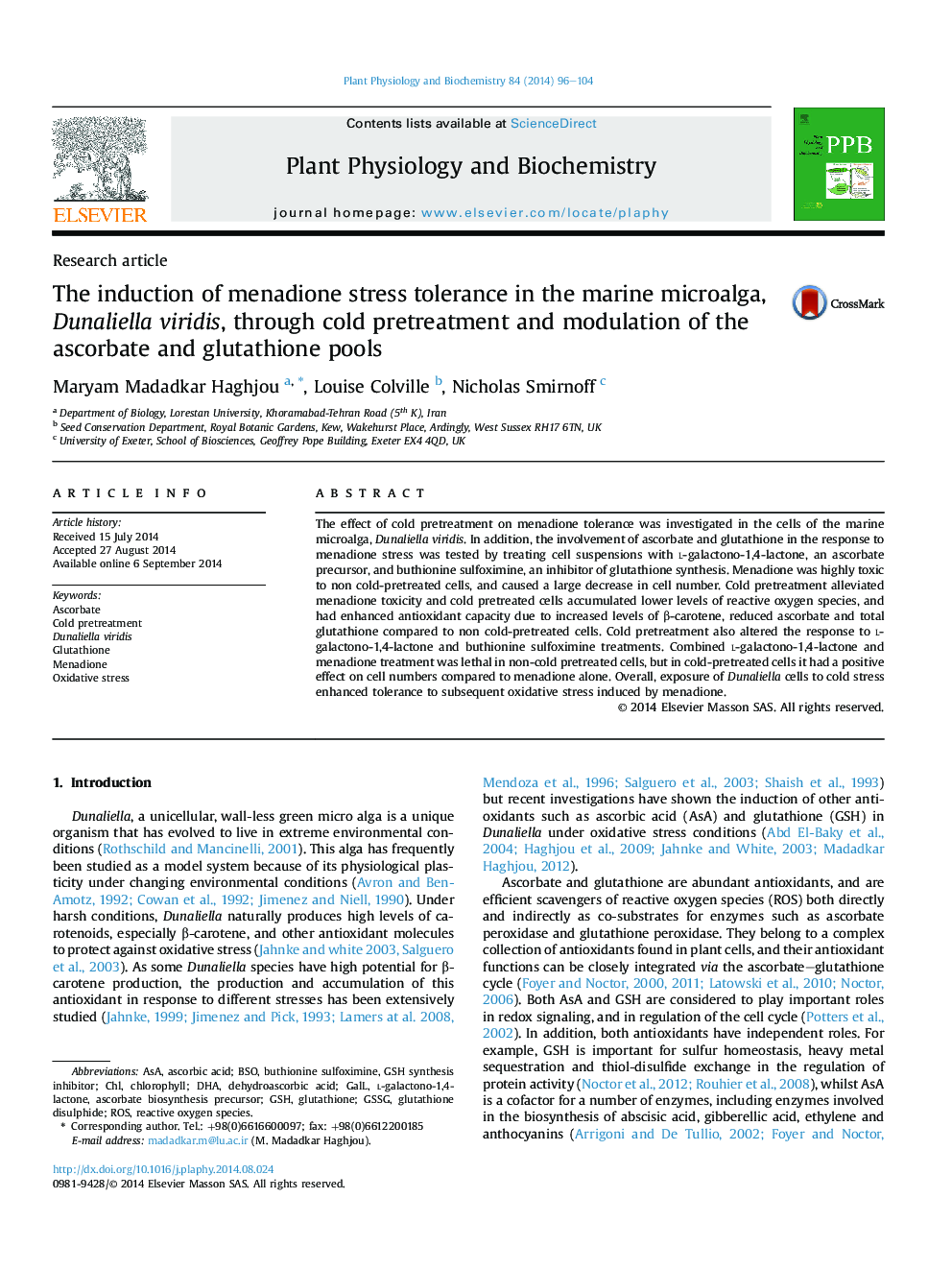| Article ID | Journal | Published Year | Pages | File Type |
|---|---|---|---|---|
| 2015661 | Plant Physiology and Biochemistry | 2014 | 9 Pages |
•Cold-pretreatment induced menadione stress tolerance in Dunaliella viridis cells.•Cold-pretreatment reduced ROS accumulation in response to menadione.•Cold-pretreatment increased antioxidant levels following exposure to menadione.•Combined l-galactono-1,4-lactone and menadione treatment was lethal.•Cold-pretreatment alleviated the lethal effects of galactonolactone and menadione.
The effect of cold pretreatment on menadione tolerance was investigated in the cells of the marine microalga, Dunaliella viridis. In addition, the involvement of ascorbate and glutathione in the response to menadione stress was tested by treating cell suspensions with l-galactono-1,4-lactone, an ascorbate precursor, and buthionine sulfoximine, an inhibitor of glutathione synthesis. Menadione was highly toxic to non cold-pretreated cells, and caused a large decrease in cell number. Cold pretreatment alleviated menadione toxicity and cold pretreated cells accumulated lower levels of reactive oxygen species, and had enhanced antioxidant capacity due to increased levels of β-carotene, reduced ascorbate and total glutathione compared to non cold-pretreated cells. Cold pretreatment also altered the response to l-galactono-1,4-lactone and buthionine sulfoximine treatments. Combined l-galactono-1,4-lactone and menadione treatment was lethal in non-cold pretreated cells, but in cold-pretreated cells it had a positive effect on cell numbers compared to menadione alone. Overall, exposure of Dunaliella cells to cold stress enhanced tolerance to subsequent oxidative stress induced by menadione.
